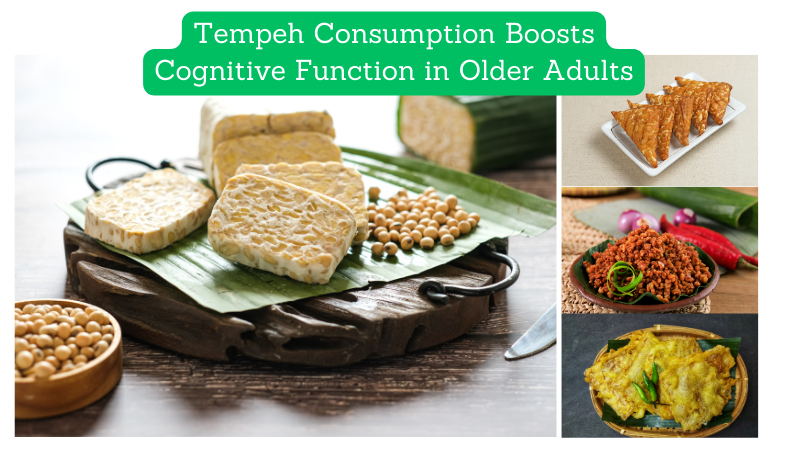Tempe or tempeh is a traditional food from Indonesia which is made by fermented soybean with Rhizopus sp. Not only providing highly nutritious food, tempeh shows also various health benefit. In this article, one study explored the connection between tempeh consumption and enhanced cognitive function among the elderly has been explored, with intriguing findings on the impact of microorganisms and serving sizes. The research, conducted over a six-month period, involved 90 participants and aimed to uncover the extent to which daily tempeh intake influences cognitive functions.
Experimental Approach
The study divided participants into three groups: Group A, consuming 100g of Tempeh A daily; Group B, consuming 100g of Tempeh B daily; and Group C, the control group. The intervention spanned six months, during which cognitive assessments were conducted both before and after the trial. Additionally, blood uric acid levels were measured at the study’s conclusion to assess the effects of tempeh consumption on this physiological marker.
Inclusion Criteria and Demographic Overview
To ensure a focused study, participants were required to be 60 years or older, experiencing mild cognitive impairment (MCI), and committed to abstaining from other fermented foods throughout the research period. Those with diabetes were excluded. At the study’s conclusion, 84 subjects remained, with a majority being female (71.4%) and over 65 years of age (72.6%).
Key Findings
Both Group A and Group B exhibited a notable increase in global cognitive scores, suggesting that regular tempeh consumption may positively influence overall cognitive function in older adults with MCI. However, the enhancement in language domain scores was observed exclusively in Group A, emphasizing the potential link between cognitive benefits and the lower microorganism count in Tempeh A.
Conclusion and Implications
The study’s results indicate that the consumption of both Tempeh A and Tempeh B over six months appears to be beneficial in improving the global cognitive function of older individuals with mild cognitive impairment. Notably, the association between Tempeh A, which boasts a lower microorganism count, and improved language domain scores presents a nuanced understanding of the potential cognitive benefits linked to specific tempeh varieties.
These findings contribute significantly to the growing body of research exploring the intricate relationship between tempeh consumption and cognitive health in aging populations. As interest in the potential cognitive benefits of fermented foods continues to rise, this study paves the way for further investigations and potential dietary recommendations to enhance cognitive function among older individuals dealing with mild cognitive impairment.
Other interesting articles:




